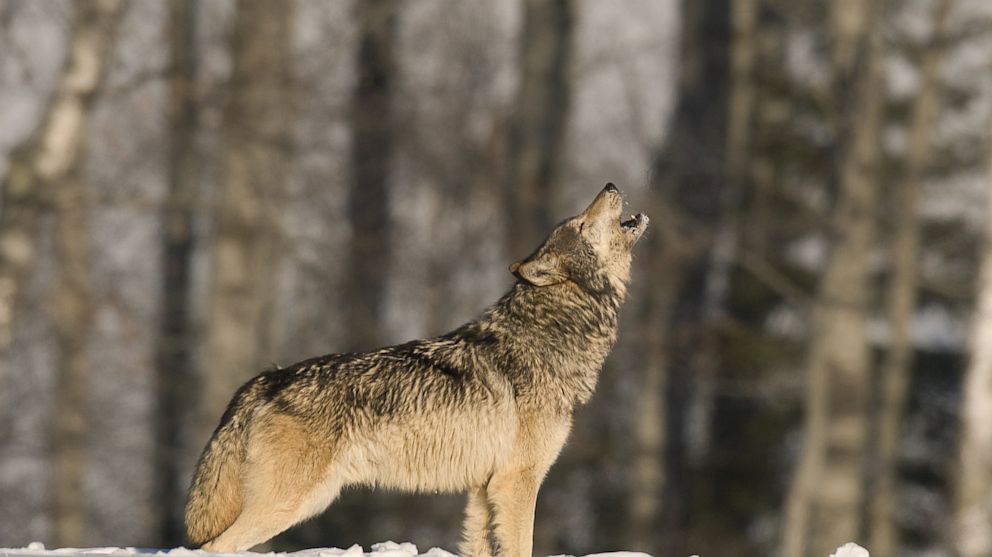Why do Wolves Howl? Love, Scientists Say
Howling is loudest when a close companion is taken away, study shows.

Sept. 1, 2013— -- The most ferocious predator in the forest, despised by cattle ranchers and feared by humans and nearly every other animal, has a soft side. Scientists in Austria have found that when wolves howl after being separated from a pack member, they are just showing a little love.
Researchers at the Wolf Science Center and the University of Veterinary Medicine, Vienna, set out to determine if the howl of a wolf is an involuntary cry caused by stress or a conscious result of separation from a companion that is particularly important, either because of social rank within the pack or genuine affection for a preferred mate.
Affection -- or love, if you're a romantic -- clearly won out.
"Our results suggest the social relationship can explain more of the variation we see in howling behavior than the emotional state of the wolf," Friederike Range, lead author of a study published in the journal Current Biology, said in releasing the report.
In other words, the wolves howled the most when they had a special relationship with the missing member of the pack. The level of anxiety caused by the separation, as determined by measurements of the stress hormone cortisol in the wolves' saliva, had virtually no effect on the howling. That indicates it was friendship, not anxiety, that caused the ruckus. However, a wolf with high social standing also earned a robust vocalization from the pack.
In recent years, scientists around the world have documented cases of human-like emotions in animals, including empathy, generosity and love, but the wolf study may be a little surprising because the apex of the canine family has a bit of an image problem. They are supposed to hate, not love.
Whether the wolf's idea of love is the same as a human's is still hotly debated among scientists, but this research is based on years of observing two packs of nine wolves. The researchers said they are confident that when they say two wolves have a thing for each other, it's at least a serious case of puppy love.
Ever since Charles Darwin first suggested that many animals probably share many emotions with humans, because emotions can be useful in the fight to survive, scientists have questioned whether other animals have any real control over those emotions. Humans do because we can think, but can animals with fewer cognitive powers voluntarily let out a howl because a good friend has gone away?
The Austrian researchers said their work shows that wolves can, and other scientists would add many species to that list.
Among the most common examples are elephants that mourn the loss of a herd member, or female apes that cling for weeks to the corpse of a dead infant, showing what many consider clear signs of motherly love.
And mourning isn't the only emotion that elephants appear to exhibit. A few weeks ago in India, elephants began attacking villages, leveling some homes and damaging a school after an elephant was hit by a train and killed. That sounds like anger, a common human emotion.
Mourning, and even love, shows up even between animals of different species. I know a horse that is so crazy about a tiny dog that it looks like it wants to die if separated, even for a few minutes. One of the most famous cases involves a gorilla and, of all things, a cat.




